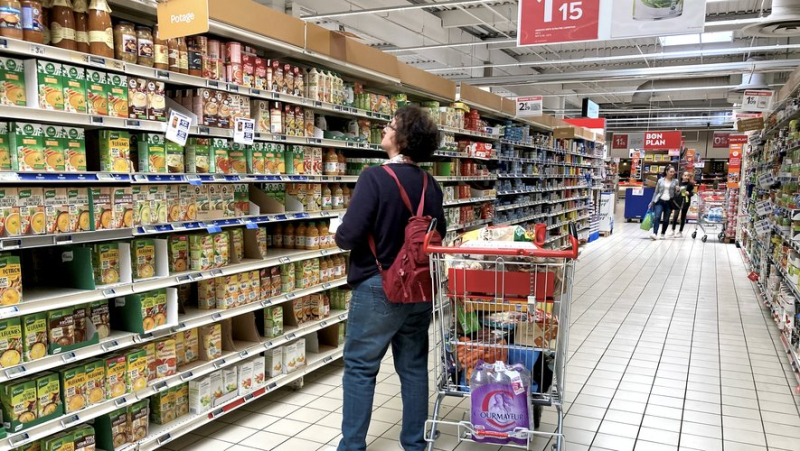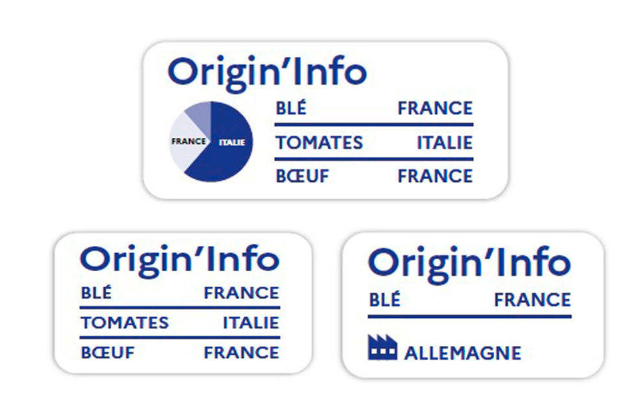Origin’Info: what is the purpose of the new food logo that will appear this summer and which brands adhere to it ?

Ce nouveau logo permettra de connaître la provenance des ingrédients des produits alimentaires. Midi Libre – CAMBON SYLVIE
Olivia Grégoire, Minister for Trade, is launching Origin’Info, which will allow consumers to know the geographical origin of the main agricultural materials that make up a food product.
Origin’Info, new logo for processed food products, will make it possible to know the origin of their ingredients: but the indicator, demanded by the agricultural world, will only be on the basis of volunteering, deplore consumer defense associations.
The operation aims to "deliver neutral and objective information on the origin of food products", indicated in March the Minister Delegate in charge of Business, Tourism and Consumption, Olivia Grégoire.
What does it look like?

The Origin’info logos will indicate the origin of the primary products of the ingredients of processed dishes. Ministry of the Economy
The Origin’Info logo was revealed last Friday by the newspaper Le Parisien . Blue or black, very neutral, it can be affixed directly to the packaging, and will mention the three main agricultural materials of the product and their countries of origin.
On a photo illustration representing a Bolognese pasta dish, we read "Blé France", "Tomatoes Italy" and "Boeuf France".
The logo may be supplemented by a mention of the place of processing of the product – which is particularly important to French food SMEs and mid-sized companies united in Pact’Alim – and by a graph symbolizing the share of each country in the composition.
"This initiative is the meaning of History", considers Mme Grégoire in Le Parisien, because "for more than 80 % of consumers", the "salient elements which determine the act of ;purchase" are "the price and geographical origin of the product". But the system will only be done on a voluntary basis, to remain within the framework of European law.
How many brands are affected ?
Eighty companies have already signed the Origin’Info charter, Bercy announced this Saturday, May 25. Among them, Fleury Michon, Bonduelle, D’Aucy, Lesieur, Panzani or Saint-Mamet, and most of the major distributors, Auchan having signed but not launching until 2025. Between summer and At the end of the year, more than 10,000 references could be affected, according to the ministry.
The initiative "also responds to the expectations expressed by the agricultural sectors, who expect more transparency from food processing companies in addition to already existing regulatory obligations" , said in the press release the Minister of Agriculture Marc Fesneau, urging companies "to join massively in this collective approach".
The consumer defense associations Rural Families, Foodwatch and UFC-Que Choisir, welcomed "the approach in favor of more transparency"< /em>, but regretted that she had to be voluntary.
No smartphone
"Brands with a sourcing policy from multiple, variable or distant origins will not be encouraged to demonstrate more transparency", they observe in a press release common.
L’UFC-Que Choisir published a study at the end of March showing that for more than two thirds of the ingredients in processed foods (canned foods, prepared meals, salads, sandwiches, charcuterie…), the manufacturers provide little or no information about the origin.
With volunteering, "for manufacturers who absolutely don't want to do anything, it’is possible", Olivier Andrault, food project manager at UFC-Que Choisir, told AFP.
The associations also contest the possibility for manufacturers to dematerialize information with a QR Code on the product, forcing the buyer to open it with their phone, while in addition "nearly a quarter do not have a smartphone", recalls Olivier Andrault.
This is so that the company does not have to "regularly modify the packaging" if the ingredients change their origin depending on the seasons, like strawberries in yogurt or tomatoes in tomato sauce, explains the minister in Le Parisien . Origin’Info information may also appear on electronic labels on shelves, and on brand drive-thru sites.
For CLVC (Consumption, Housing, Living Environment), Origin’Info "must not overshadow the deployment of the Nutri-Score" which concerns the nutritional quality of products. CLVC fears that "some brands only display the logo that is advantageous to them".
Pact’Alim welcomes this new "voluntary device", however wishing to be able to evaluate it in a year, particularly in terms of cost.
Finally, both Pact’Alim and consumer defense associations urge Ms. Grégoire to bring to the European level the obligation to adopt from 2025 a measure like Origin’Info.




